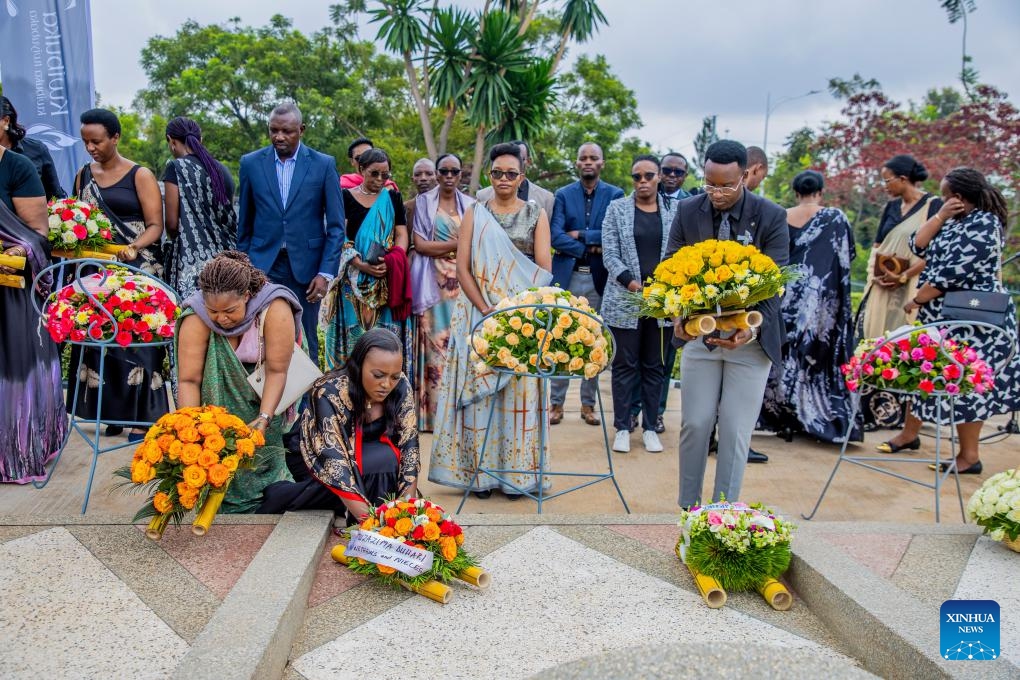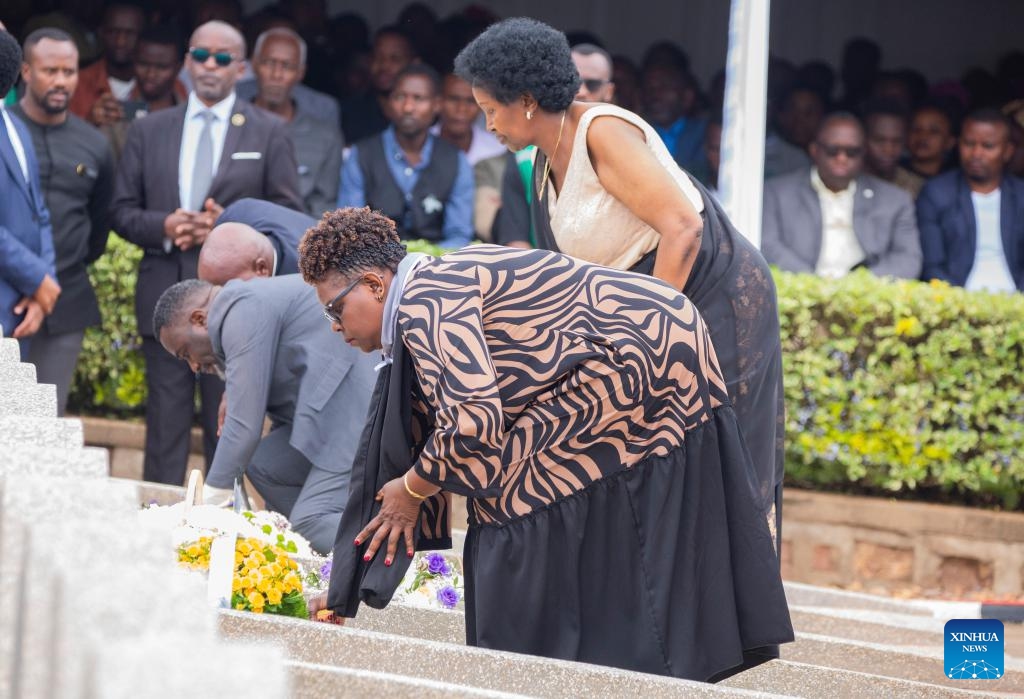
This photo taken on April 13, 2025 shows a view of the wall of victims' names at the Rebero Genocide Memorial in Kigali, Rwanda. Rwanda on Sunday paid tribute to politicians who were killed during the 1994 Genocide Against the Tutsi for opposing discrimination, divisive ideology, and the genocide plan, as the country concluded its national commemoration week. (Photo: Xinhua)

Families of the victims who were killed during the 1994 Genocide Against the Tutsi lay wreaths at the Rebero Genocide Memorial in Kigali, Rwanda, April 13, 2025. Rwanda on Sunday paid tribute to politicians who were killed during the 1994 Genocide Against the Tutsi for opposing discrimination, divisive ideology, and the genocide plan, as the country concluded its national commemoration week. (Photo: Xinhua)

Families of the victims who were killed during the 1994 Genocide Against the Tutsi lay wreaths at the Rebero Genocide Memorial in Kigali, Rwanda, April 13, 2025. Rwanda on Sunday paid tribute to politicians who were killed during the 1994 Genocide Against the Tutsi for opposing discrimination, divisive ideology, and the genocide plan, as the country concluded its national commemoration week. (Photo: Xinhua)
Rwandans on Saturday paid tribute to politicians killed during the 1994 genocide against the Tutsi after they opposed the genocide plan, as the 30th national commemoration week came to a close.
The event took place at the Rebero Memorial site in the capital of Kigali, where more than 14,400 victims of the genocide are interred. It was marked by a presentation on the life and struggle of the 21 fallen politicians.
Senior government officials, members of the diplomatic corps, families of the fallen politicians and representatives of survivors' associations attended the event and laid wreaths at the graves in honor of the victims.
Senate President Francois Xavier Kalinda, who presided over the ceremony, urged Rwandan political parties and politicians to "foster unity among Rwandans and avoid divisive politics" so as not to drag the country back to its dark past.
Abbas Mukama, spokesperson for the National Forum of Political Parties, said the politicians were killed because they stood against genocide, hatred, dictatorship and segregation.
As politicians, "we have the duty to continue to educate our party faithful and all Rwandans about peaceful co-existence, upholding unity, being exemplary and working toward good governance," he said.
The commemoration week began on April 7 under the theme "Remember-Unite-Renew," during which various commemorative activities were held throughout the country, including a "Walk to Remember" march in Kigali and night vigils.
The commemorative activities will continue until July 4, marking the 100-day calamity when about 1 million people, mostly of the Tutsi community and moderate Hutus, were killed in the genocide by Hutu extremists.






